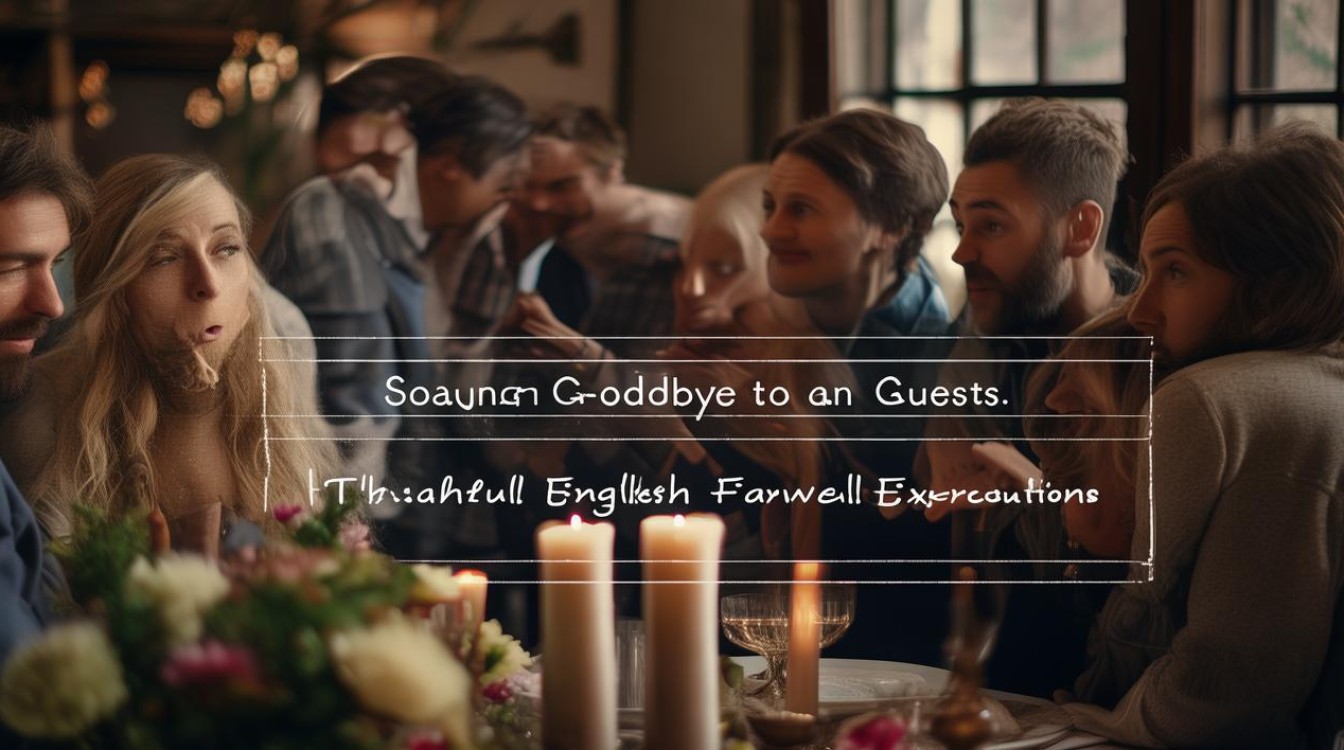Hospitality is an art, and how we bid farewell to guests often leaves a lasting impression. Whether you’re hosting international visitors, friends, or business associates, the right words can make the departure warm and memorable. Here’s a guide to crafting sincere and polished farewell messages in English, tailored for different occasions.

The Importance of a Good Farewell
A well-delivered goodbye does more than end a visit—it strengthens relationships. It reflects gratitude, respect, and hope for future connections. In many cultures, the final moments of an interaction carry significant weight, so choosing the right words matters.
Casual Farewells for Friends and Family
For informal settings, warmth and simplicity work best. Examples include:
- "It was so great catching up! Let’s not wait so long next time."
- "Safe travels! Text me when you get home."
- "Thanks for coming—we loved having you here!"
These phrases feel personal and unforced, perfect for close relationships. Adding a specific detail ("I’ll miss our late-night chats!") makes it even more heartfelt.
Formal Goodbyes for Business or Professional Guests
In professional contexts, tone shifts to courtesy and professionalism. Try:

- "We appreciate your time and insights. Looking forward to future collaborations."
- "It was a pleasure hosting you. Safe journey back, and don’t hesitate to reach out."
- "Thank you for your visit. Your feedback was invaluable to our team."
Pair these with a firm handshake or a polite nod to reinforce sincerity.
Farewells for International Guests
When hosting guests from abroad, cultural sensitivity elevates your goodbye:
- "It was an honor to share our culture with you. Wishing you a smooth trip home."
- "Hope you enjoyed your stay in [country]. You’re always welcome back!"
- "Safe travels! May we meet again soon."
Avoid idioms like "Hit the road!" which might confuse non-native speakers.
Written Farewell Messages
For thank-you notes or emails, structure matters:

- Opening: Reiterate the joy of their visit.
"Dear [Name], Thank you for spending the weekend with us." - Body: Highlight a specific moment.
"Dinner at the lake was unforgettable—your stories made it even better." - Closing: End with warmth.
"Wishing you all the best until we meet again!"
Handling Emotional Goodbyes
Partings can be bittersweet. Acknowledge the emotion while keeping it uplifting:
- "This isn’t goodbye—it’s ‘see you later.’"
- "We’ll miss you, but we’re excited for your next adventure!"
Avoiding Common Mistakes
- Overly generic phrases: "Bye, take care" lacks personalization.
- Rushing the goodbye: Pause to make eye contact and smile.
- Ignoring cultural norms: In some cultures, prolonged farewells are customary.
Non-Verbal Farewell Cues
Words are just part of the exchange. Complement them with:
- A small gift (a local souvenir or handwritten note).
- Walking guests to their car or the door.
- A genuine smile or hug, if appropriate.
Adapting to Different Scenarios
- Houseguests: Offer help with luggage or directions.
"Let me carry that for you. Do you need a ride to the station?" - Business partners: Reaffirm next steps.
"I’ll follow up with the report by Friday. Thanks again for your time."
The Power of "Until Next Time"
A farewell isn’t an end—it’s a bridge to the next meeting. Phrases like "See you soon!" or "Let’s plan another get-together" keep the connection alive.
Genuine goodbyes resonate because they’re tailored, thoughtful, and full of heart. Whether spoken or written, they turn an ordinary moment into a meaningful one. As you refine your farewells, remember: the best ones leave guests already looking forward to returning.

Hospitality isn’t just about welcoming people—it’s about how you make them feel when they leave. Master this, and every goodbye becomes a promise of more to come.


